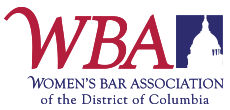By Sameena Safdar, Esq.
This article was originally published by the Institute of Well-Being in Law.

In today’s business world, the concept of personal branding has evolved from a mere buzzword to a strategic asset for companies, and the legal industry is no exception. In a discussion last spring, a panel of leaders with unique viewpoints based on their diverse roles offered profound insights into how a company’s culture can impact employees’ willingness to share their personal brands–and how doing so can impact their own and the company’s overall well-being. There is a nuanced interplay between individual identity and collective corporate health.
Defining personal branding
Personal branding itself is often a misunderstood term. Personal branding transcends your professional achievements. Victoria Tollossa, personal branding strategist and CEO of Ilume, defines a personal brand as “the image or the reputation that you create in others’ minds, based on your unique expertise and skill set, your values, your personal mission, and your personal story. All of those things together create this image and reputation in the minds of other people.” Nita Cumello, Director of Well-being for Large Law at Thomson Reuters, agrees: “Your personal brand is what you stand for, it’s the purpose you align to and what others connect to.”
The importance of sharing your personal brand externally and internally
Sharing your personal brand is crucial for lawyers, who by nature have to sell clients on themselves. “In the legal industry, it’s a people business where the lawyer is the product. Sharing your personal brand is how you can build those connections with your clients and just with the industry at large,” explained Tollossa. By promoting personal brands, firms not only humanize their services but also differentiate themselves in a market saturated with competence but starved for connection. Tollossa describes this as the ‘halo effect’: “If I’m view
ed as an expert or a thought leader in my industry, then that positively reflects on the firm.” The implication is clear: when employees are perceived positively in the external market, it enhances the firm’s reputation by association.
But sharing your brand is not just useful for winning clients and getting repeat business from them, but also for building trust with your colleagues as well. Lynn Espy-Williams, partner and Chief Diversity, Equity, and Inclusion Officer at Cozen O’Connor, explained: “When you are a young lawyer or young professional, your colleagues are your clients. If you don’t share your brand internally, people have no idea who you are, what you stand for, and what you do.” Nurturing sharing of your personal brand both externally and within your organization is not a luxury but a necessity, further explained Espy-Williams: “If your partners, associates, and counsel do not know what your practice is, what you’re thinking about, what you’re focused on, or the type of business that you’re trying to bring into the firm, they cannot help you.”
Psychological safety is crucial
What must an organization put in place to ensure employees feel safe sharing their personal brands? The first component is ensuring there’s psychological safety for everyone to share who they are authentically. Cumello defines psychological safety as “the shared belief that the team or the work environment is a safe place to take interpersonal risks. What that means is that when you’re at work, you feel comfortable sharing ideas, making mistakes, constructively, disagreeing, and you’re able to do that, and you don’t have the fear of being rejected or treated differently.”
But creating an inclusive workplace is part of creating a psychologically safe workplace too. Using preferred pronouns in email signature blocks, accommodating learning styles, providing multiple ways to access technology, and providing safe places for nursing women are just a few ways to make workplaces more inclusive and leave employees feeling psychologically safe. The firm culture has to be authentic, emphasized Levenfeld Pearlstein partner Kevin Slaughter: “I have a voice that’s different from others at my firm. And all this authenticity that I think I’m experiencing at my firm is not real if I can’t speak up and share my differing opinion.”
Sharing your personal brand truly requires being visible – but Tollossa warns that if employees are afraid to make their full selves visible because their work environment doesn’t create a safe space for them to do that, then it’s going to be hard for employers to encourage people to build and share their personal brands just because they’re going to be scared to show up as their full selves. Instead, Espy-Wlliams encourages leaders to create spaces and opportunities for individuals to share their cultures.
How employers benefit from employees’ sharing personal brands
The benefits of employees feeling empowered to showcase their unique identities and strengths are vast, with the development of a more engaged workforce a tangible benefit. “When you have a psychologically safe environment at work, it provides an opportunity for people to communicate more openly. They share their concerns, they seek feedback and it produces a whole lot more in the way of innovation, creativity and frankly, client service,” says Cumello. A robust personal brand can be a magnet, attracting like-minded clients and colleagues, thus contributing to a vibrant and inclusive company culture.
The benefit of amplifying others
The panelists highlighted actionable strategies for organizations to encourage personal brand development. Regularly practicing recognition of employees is key and something Espy-Williams regularly practices: “Spotlight your people, taking every opportunity to raise the profile of someone else that you care about or someone else with whom you’re working.” She noted that it reflects well on her as well, for promoting her associate, but also makes that person feel truly valued and seen – and less likely to leave the firm.
Leaders’ walking the walk
It’s equally important leaders walk the walk and share their personal brands as well, says Cumello: “Showing up as yourself gives younger associates the permission to do the same. That type of signaling from leadership is absolutely critical to retention.” Slaughter says it’s also helpful because it lets associates and other people know that it is okay to be yourself and not to try to cover it up: “It’s debilitating when you’re trying to code switch or be someone who you’re not.”
Another key factor is helping employees discover their strengths and who they truly are. “Empower your people by helping them discover and explore those strengths that they have or that they might value,” encouraged Cumello. Do this with a collaborative approach, with the organization and the employee being mutually invested in the personal brand’s development.
Encouraging well-being is another key component of encouraging employees to share their personal brands, particularly in the post-pandemic era. Well-being does not just mean physical wellness but a holistic concept encompassing mental, emotional, social, and occupational aspects. Cumello encouraged leaders to embrace and encourage employee wellbeing: “A positive wellbeing is the foundation for people showing up as their best selves and optimizing the best version of themselves, meaning that their work, their values, their health, their purpose, it’s all kind of in harmony and in alignment.”
In conclusion, there are many compelling arguments for the integration of personal branding into corporate strategy. By investing in the personal brands of their employees, companies can enhance their cultural fabric, drive engagement, and ultimately, bolster their bottom line through increased trust, reputation, and client loyalty. The message is unequivocal: a strong personal brand is not just an individual asset; it is a collective advantage.
Sameena Safdar is a personal branding and digital media strategist. A former practicing lawyer and federal clerk, Sameena spent years in legal technology sales and marketing, before founding Amplify Your Voice LLC in 2021 to help companies and individuals find and share their voices in the world.
Sameena helps clients overcome their imposter syndrome to intentionally and authentically share their personal brands with others. She believes you cannot enjoy professional success without a life incorporating a healthy well-being and living authentically. She coaches lawyers, legal professionals, and others on using social media to authentically share their brands to boost visibility, drive business development, and enjoy the well-being of living authentically.
Sameena writes and speaks nationally on personal branding, social media, legal technology, and diversity, equity, and inclusion. She also serves on the advisory boards of The Blue and Black Partnership, Justice Technology Association, and Citi Arbitration. She has served as a co-chair of the Women’s Bar Association of the District of Columbia since 2019.
Additionally, Sameena raises teens in Washington, DC, taking advantage of all the museums, festivals, national parks, theatres, and restaurants the city offers, and spends far too much time on LinkedIn, Instagram, and X (fka Twitter).
